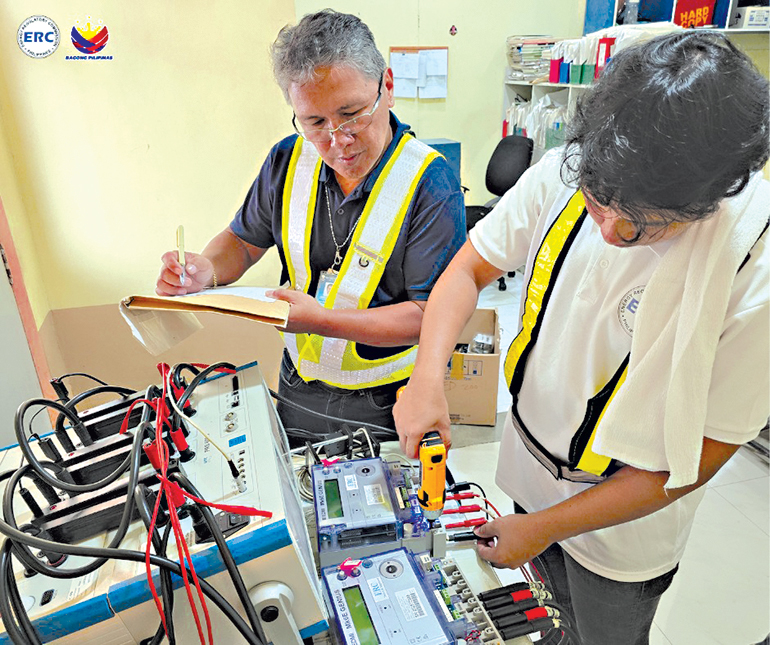Pushing for stronger consumer protection in energy

As a quasi-judicial and independent regulatory body, the Energy Regulatory Commission (ERC) is mandated to issue and approve rules, guidelines and policies that govern power rates, service quality and licensing. But more than technical regulation, the commission is focused on educating the public about their rights as consumers and ensuring they are not at a disadvantage in the electricity market.
The ERC enforces consumer protection through the Magna Carta for Residential Electricity Consumers to ensure fairness, accountability, and transparency in the delivery of electricity services to households.
The charter guarantees that residential consumers have access to a continuous and secure power supply. It also sets clear rules for fair pricing, proper billing procedures, and the timely investigation of complaints.
Utility companies, on the other hand, must treat all customers with courtesy and without discrimination. Monthly billing statements are required to follow the ERC-approved format that must be itemized, delivered on time, and made payable at authorized payment centers.
The ERC mandates that all meters must be tested, certified, and sealed before installation. These meters must fall within an acceptable range of accuracy. Consumers are entitled to one free meter test every two years. Should the meter be found defective or fast, the consumer is entitled to a refund for any overbilling that occurred.
To avoid sudden service disconnections, utilities are required to issue a disconnection notice at least 48 hours before power is cut off. Power cannot be disconnected after 3 p.m., on weekends, or during holidays. In cases where a death occurs in the household or there are documented medical reasons, disconnections are not permitted.
The Magna Carta allows households to pay under protest while disputing their bill. This method ensures their electricity remains active while the issue is under investigation. Consumers may also file complaints directly with the ERC if their utility fails to address issues adequately.
In 2023, the ERC launched LINKod, a digital platform aimed at reducing delays in processing complaints and increasing transparency in the energy sector. The platform includes a Consumer Complaints Ticketing System (CCTS), an Online Filing and Application System (OFAS), and a Billing and Revenue System-Cashiering System (BRS-CS) to allow consumers and industry players to file documents, monitor complaints, and complete transactions without going to the ERC’s offices.
Electricity companies are also expected to benefit from LINKod, as the system provides an online channel for submitting regular reports and taking part in the Competitive Retail Electricity Market.
Last March, the commission officially adopts the Alternative Dispute Resolution (ADR) Policy through Resolution No. 5, Series of 2025 to allow more efficient options for resolving conflicts between consumers and providers. The ADR policy provides structured processes such as mediation, negotiation, arbitration, and expert evaluation to avoid lengthy legal proceedings.
Meanwhile, the ERC issued new omnibus rules to strengthen consumer choice and promote a more competitive energy market. These updated guidelines merge several key consumer programs under one framework, including the Retail Competition and Open Access (RCOA), the Retail Aggregation Program (RAP), the Green Energy Option Program (GEOP), and rules on Distributed Energy Resources.
Under RCOA, qualified electricity users can choose their power suppliers to create more competitive prices and better services. The RAP, on the other hand, allows two or more users within the same franchise area to combine their electricity demand and register as one customer.
The omnibus rules also revise the requirements for Retail Electricity Suppliers. To ensure financial stability, suppliers must now meet a minimum tangible net worth of P15 million before they can apply for a license. In addition, the ERC will evaluate license applications using performance indicators such as customer satisfaction, adherence to rules, and service efficiency. — Jomarc Angelo M. Corpuz



